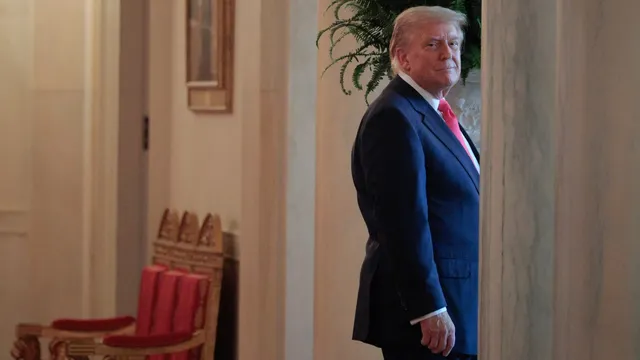
Trump orders strikes on Iran amid Republican support
2025-06-27 20:25- President Donald Trump ordered strikes on Iranian nuclear facilities, uniting Republican support.
- Some Republicans expressed concern over the ramifications of military action, particularly regarding Israel’s influence.
- The strikes led to a temporary ceasefire agreement between Israel and Iran, raising questions about the future of U.S. foreign policy.
Express your sentiment!
Insights
In the wake of escalating tensions in the Middle East, President Donald Trump authorized U.S. military strikes on Iranian nuclear facilities, a decision that predominantly unified the Republican Party behind him. This order follows a prolonged period of internal division within the party, where hawkish Republicans and traditional conservatives were at odds with those advocating against foreign military interventions, particularly in relation to Iran's nuclear ambitions. During this time, prominent Republicans like Senator Lindsey Graham emphasized the necessity of addressing Iran's nuclear capabilities proactively, suggesting an urgent need to avoid a future where Iran could potentially wield nuclear weapons. Simultaneously, figures within Trump's conservative base, including Representative Matt Gaetz, expressed skepticism towards military action, framing it as a pursuit driven more by foreign interests, particularly Israel, rather than American security. Despite these divisions, the overall momentum of support for Trump surged following the decision for strikes, emphasizing his strong role as commander in chief amidst conflicting opinions on foreign policy. Congressional dynamics played a significant role in the backdrop of these military actions, with Senate Republicans exhibiting an unusual contentment regarding Trump’s unilateral decision-making. Although some voiced concerns about transparency, particularly around the delayed intelligence briefing regarding the military strikes, many officials within the party seemed willing to overlook the need for extensive communication from the administration. This apparent tranquility points towards a broader strategy among Republicans to present a united front in support of Trump during a period marked by heightened international conflict. As the situation unfolded, the administration announced a ceasefire agreement between Israel and Iran, indicating a momentary reduction in hostilities. This development sparked discussions about the potential for peace in the region but left many analysts and lawmakers pondering the long-term implications of Trump's military decisions. How the MAGA movement reconciles Trump's military actions with its foundational ideals of limiting foreign intervention remains unclear, as discussions about military engagement and national policy continue within the party. As these complexities play out, the future of U.S. relations with Iran and its allies stands poised on a precarious edge, potentially reshaping the landscape of U.S. foreign policy moving forward.